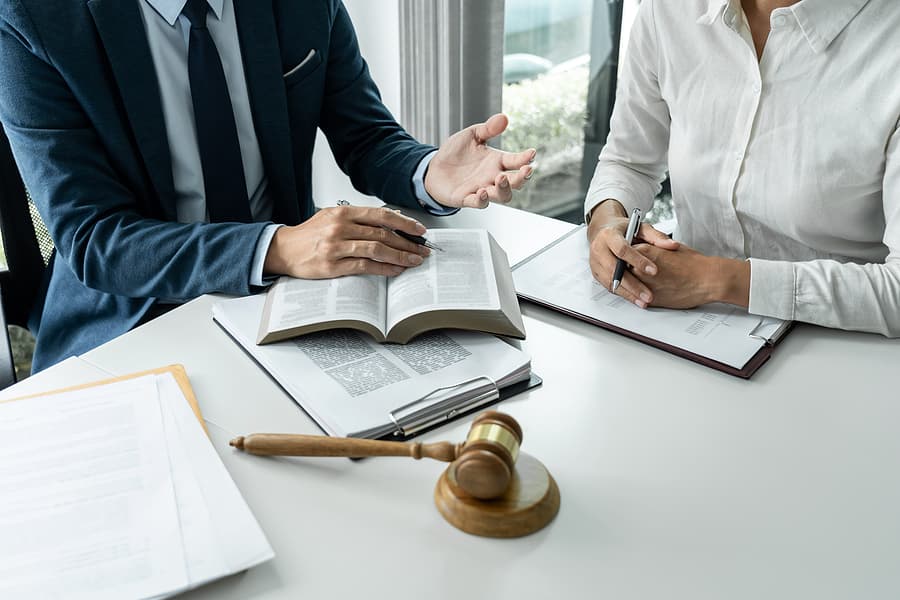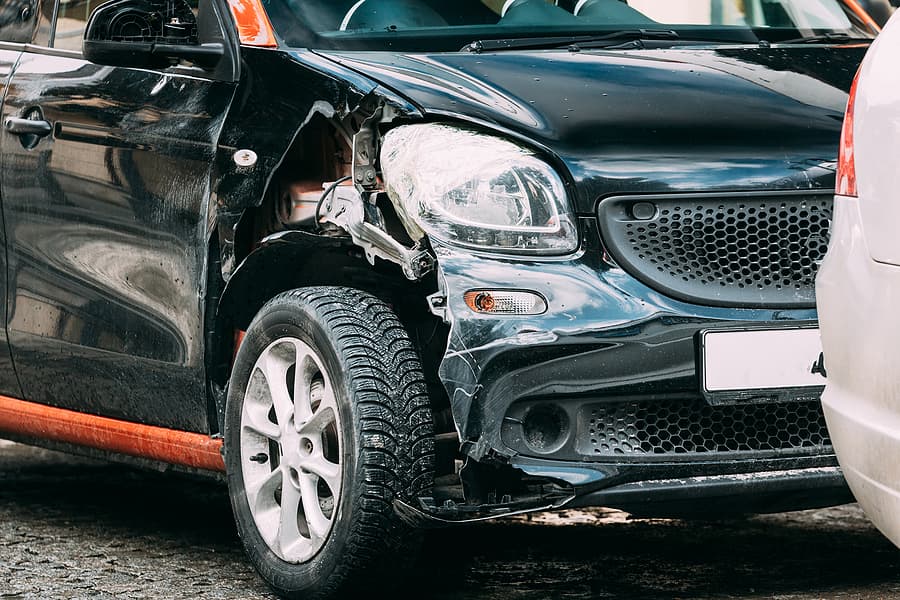Most people drive or ride in a car every day, and we tend to take for granted that we will get to our destination safely. We may worry about a traffic jam, but we simply do not want to think about the possibility of a serious crash in which we might be injured or killed. But the harsh reality is that car accidents happen more frequently than we like to think, and it could happen to you.
After a car accident, your decisions can directly affect your life moving forward. That is why knowing what to do after a car accident is crucial. If you or someone you love has suffered an injury from a car accident, contact a car accident attorney to find out how you can protect your rights.
Six steps to take after a car accident
Recent data shows that approximately six million automobile accidents happen every year in the United States. More than 42,000 people died in motor vehicle accidents in 2021.
If someone else’s actions or negligence caused the accident, you might have a legal claim for financial damages. The amount of any settlement or judgment you may receive will depend largely on the steps you take following an accident. Here are six steps you need to take after a car accident.
1. Stay calm and stay focused.
 It is natural to feel overwhelmed with emotions after an accident. Anxiety, anger, and confusion are all normal feelings. However, try to control your emotions. Do not lash out or blame the other driver, and do not panic. It does no good and could even put you in greater danger to confront the other driver in anger.
It is natural to feel overwhelmed with emotions after an accident. Anxiety, anger, and confusion are all normal feelings. However, try to control your emotions. Do not lash out or blame the other driver, and do not panic. It does no good and could even put you in greater danger to confront the other driver in anger.
Immediately following a collision, safely move your vehicle out of traffic if possible. The law requires you to stay at the accident scene, but does instruct that you should not obstruct traffic any more than necessary. You can even go directly to the nearest police station if you believe you could be harmed by staying at the scene, such as in a road rage situation. After you move your vehicle, check for any other threats that might pose an immediate danger.
This includes:
- Fire or potential gas leaks
- Falling debris
- Blind curves or hills
Once you have surveyed the scene, check your passengers and the other vehicle for any signs of injury. If anyone needs immediate care, call 911.
2. Talk to the other driver.
Exchange insurance information after an accident so you can file an insurance claim and recover damages. Additionally, you must provide your information to the other driver, even if you were not at fault. Be sure to get all necessary information, as it may be difficult or impossible to obtain this information after the fact.
At a minimum, record:
- The driver’s name and phone number
- The name of their insurance company
- The insurance policy number
- The contact information for the insurance company
- The name of their employer if they were on the job
Other helpful information includes:
- The driver’s address
- The driver’s license number
- The make and model of the other driver’s vehicle
- The name and contact information for any passengers in the other vehicle
3. Document the accident.
You never know how a car accident case is going to play out. Even if it is clear to you what happened and who was at fault, you do not know what the other party will say or do. So, it is essential to protect yourself. The best way to do this is to collect evidence. Think of what you would need to recreate the scene.
One of the best things you can do is take pictures. Take pictures of your vehicle, the other driver’s vehicle, including their license plate, and any property damage. Do not forget to get pictures of the full vehicle, not just damaged areas. Talk to witnesses and get their contact information. Your attorney or the insurance company may want to talk to them if there is any dispute about the events leading up to and after the accident.
4. Obtain medical care.
Motor vehicle accidents are the leading cause of spinal cord injuries and the leading cause of traumatic brain injuries requiring hospitalization. These are injuries that are not always immediately noticeable after a crash. Even if you feel fine after a car accident, seek medical attention. Although spinal cord injuries and traumatic brain injuries may not present symptoms right away, early treatment may help prevent permanent injury.
After an accident, a doctor can review your symptoms and do a thorough examination. It is better to be over-cautious than to not take appropriate action and end up with more serious injuries. Your Michigan No-Fault insurance must pay for this hospital visit, so do not delay treatment based on cost.
After your initial appointment, you need to attend any follow-up care. Not only is follow-up care an important part of your recovery, but it will also become a key part of your car accident case if you decide to take legal action. As you attend your appointments, keep a record of where you go, who you see, and any referrals or prescriptions ordered.
5. Speak to an experienced car accident attorney.
If you are in a car accident, your insurance policy will generally require that you notify the insurance company within two or three days. You will need to provide the insurer with the details of what happened in order to open a claim, or in case someone files a claim against you. Then, speak with a qualified legal professional as soon as possible.
Michigan’s No-Fault law allows victims who suffer injury after an accident to recover certain benefits from their own insurance company no matter who was at fault. If you or a loved one sustains serious bodily injury, is disfigured, or dies, you may be able to recover other damages if the accident was the other driver’s fault. In both cases, you will most likely be dealing exclusively with the insurance company. Remember, insurance companies are in the business of making money, and will do what they can to avoid paying the full value of your claim. You want an advocate by your side who can defend your rights and help you fight for a reasonable and just settlement.
6. Stick to your state’s statute of limitations.
In any legal matter, there is generally a statute of limitations. This is the amount of time you have to take legal action. For car accidents, the statute of limitations begins the day of the accident, not the day you discover your injuries or the day you report the accident. If the statute of limitations expires, you forfeit your right to make a legal claim.
Each state determines its statute of limitations. In Michigan, the statute of limitations for car accidents and other personal injury matters is three years. However, claims for No-Fault insurance benefits have much shorter deadlines, with actions that need to happen in the first year after the crash. Thus, for either type of claim, contact an experienced car accident attorney as soon as possible.
If you believe the statute of limitations has passed in your case, it may still be a good idea to contact an experienced car accident attorney. There are some exceptions that give you more time to file a claim, and your attorney will be able to tell you if those exceptions apply in your case.
Four things to avoid after a car accident
While there are certain things you should do after an accident, at the same time, there are things you should not do. Here are our top four:
1. Do not admit fault.
It is easy to get caught up after an accident and say “I’m sorry” or look for things you could have done to prevent the accident. Even if you think the crash was your fault, more information that comes out later might show that you were not. Right after a crash when emotions are running high is not the time to discuss who is to blame. Rather, it is usually best not to talk to the other driver outside of exchanging information.
If you say “I’m sorry” or “I’m not sure what happened,” to the other driver, they will likely repeat this to the insurance company. Because the insurance company would like a reason not to pay you damages, they will use such a statement to blame you for the crash. Do not let the insurance company blame you for an accident that was not your fault.
2. Do not agree to roadside deals.
It is an unfortunate reality that when you are in an accident, most insurance companies will raise your insurance rates. So, some drivers may try to make a deal to pay for your damages without reporting the crash to the insurers. This practice is not in your best interests.
Avoid a cash payoff after an accident because:
- You are relying on the word of a stranger: Chances are, the other driver does not have the cash they say they are willing to pay you. That means you are either taking a check or relying on their word that they will pay you. You have no means to determine whether this person is trustworthy and if you will ever receive any money.
- Your car damages may be greater than they seem: Unless you are a mechanic or do vehicle body work, you probably have no idea how much the repairs to your vehicle will actually cost. A mechanic may discover damage to your vehicle that is not visible right after the crash, like a bent frame, that could cost significantly more than the other driver is offering. If you later discover the damage is more than you initially thought, you are out of luck.
- Your injuries may be worse than they first appear: The other person’s offer might cover the cost of the repairs to your vehicle. But what happens when your neck begins to hurt? Or you have to go to the ER with a splitting headache? Signs of an injury can take days to appear. You want to know you are covered if you need to go to the doctor or take time off from work. Medical bills and lost wages from an accident can quickly add up to hundreds of thousands of dollars.
3. Do not sign anything without talking to a lawyer.
Insurance companies like working with claimants who do not have a lawyer. They know that most people do not know the value of their claims, and they have tactics to get you to take a low settlement. Lawyers know these tactics and how to determine the full value of your claim.
If you receive an offer from the insurance company before you ask for it, or it seems like a lot of money to you, this is a big red flag. Insurance companies look for ways to pay you less, so if they make an offer, it shows that they know you have a case. Do not sign anything from the insurance company or agree to a settlement without first talking to a lawyer. An experienced car accident attorney can review your case, tell you if the offer is fair, and guide you through the next steps.
4. Do not post about your accident on social media.
Insurance companies will look at your social media. Once again, the insurance company will always look for a way to get out of paying you. If they can, they will use your pictures and your words against you. Do not post pictures of the accident. Do not talk about your “bad wreck” or the other driver’s actions. Do not discuss the accident on social media at all.
Further, watch what you post in general and set all of your accounts to private, but do not delete anything. If you complained about your sore neck or back before the crash, the insurance company may try to claim that your injuries predated the crash. If you post pictures on a good day after you are injured, they may try to claim that your injuries are not as bad as you reported. It is best to share your posts only with friends and family.
Protect your rights after an accident
When dealing with an accident, take care of yourself. Now is the time to protect your physical, emotional, and financial well-being. Accidents can be overwhelming, and it is not something you should do alone. If you need help or have questions after a car accident, contact the experienced personal injury attorneys at Gruel Mills.



